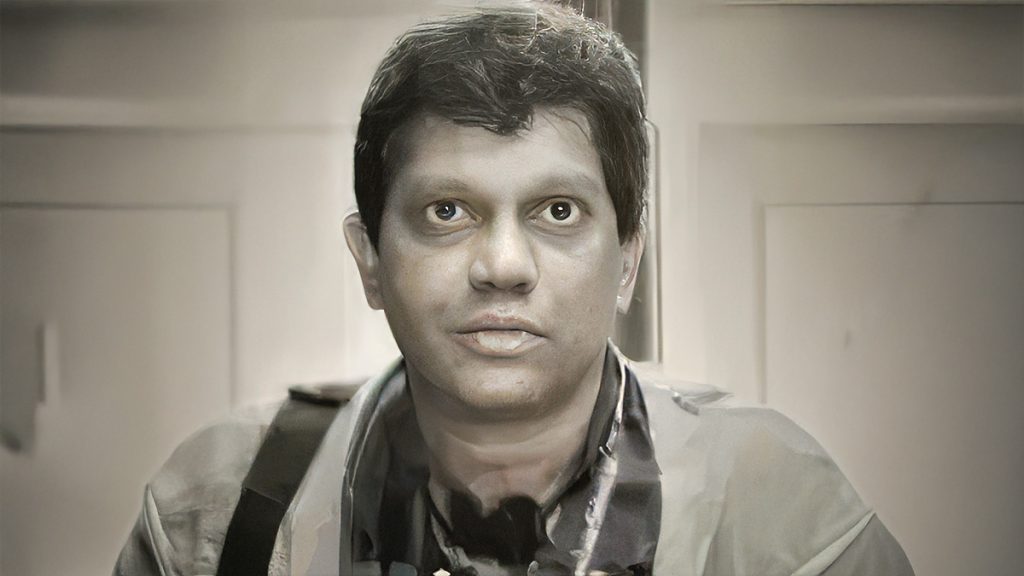The Catholic Church in Malaysia has long been a quiet moral presence — respected, charitable, but often reticent. Yet in a nation wrestling with corruption, inequality, and interfaith tension, that silence has become more audible than ever.
Across Asia, Catholic editors are voicing a shared conviction: silence serves no one.
At a recent roundtable organised by SIGNIS Asia, the Catholic association for communication professionals, participants called for the Church to reclaim its voice through creative storytelling, credible reporting, and courageous digital evangelisation.
What they envisioned — a partnership between clergy and communicators — is precisely what the Malaysian Church needs.
Our clergy, for all their pastoral dedication, remain largely media-shy.
The words “no comment” or blatant ignorance of queries by journalists are too frequently the standard response when newsmen seek clarity or guidance on issues that cry out for moral reflection.
It is a posture born perhaps of caution, humility, or fear of misinterpretation — but it comes at a cost.
The Church’s social teaching is not meant to remain locked within catechisms or seminary classrooms.
It is meant to enter the public square — to defend human dignity, uphold justice, and speak truth to power.
When our priests and bishops retreat into silence, the Gospel loses one of its most vital expressions: the prophetic voice.
Silence may feel safe,
but it is not the Gospel.
A Church that hides its light
The media landscape today is a battleground of competing narratives — some compassionate, others corrosive. In such a climate, silence is not neutrality; it becomes complicity by omission.
Malaysian Catholic journalists are not asking their priests to become politicians. What they seek is leadership that interprets the Gospel amid the complexities of daily life — leadership that helps the faithful see how faith intersects with wages, education, the environment, and the rights of the marginalised.
When clergy stay silent on issues like corruption, racial discrimination, or the struggles of migrant workers, a dangerous vacuum emerges — one that is quickly filled by louder, often less-informed voices.
As a journalist who has covered such stories time and again, I have seen how this silence not only weakens the Church’s moral witness but also leaves those of us in the field struggling to give faith a credible voice in the public square.
The Church’s moral authority is not diminished by speaking up — it is strengthened by standing alongside those who suffer. And yet, the silence is puzzling — especially when the Church in Malaysia already possesses a hidden but extraordinary asset: its people, working in secular mainstream newsrooms.
A significant number of journalists in today’s media landscape in the country are Catholics and Christians — an untapped force of conscience and communication. These men and women, often working quietly in mainstream newsrooms, embody the Gospel values of truth, justice, and compassion, bringing a moral depth to the stories they tell and the issues they highlight.
Imagine what could happen if the Church were to harness this living network — not as propagandists, but as witnesses of truth within the nation’s fourth estate. Through them, the social teachings of the Church could find a voice in the public square — on issues of human dignity, corruption, poverty, interfaith harmony, and care for creation.
This is not about institutional control, but about empowering Catholic professionals to live their faith through their craft, to make media itself a mission field. In their words and stories, the Church already speaks — if only it would choose to listen and collaborate.
Silence serves no one.
Engagement, not controversy
To engage the media does not mean courting controversy or partisanship. It means offering perspective. When the Church speaks through the secular or faith-based media — be it print, radio, or social platforms — it has the chance to bring balance and depth to public discourse.
Unfortunately, many clergy in Malaysia still view journalists as potential adversaries rather than partners in truth-telling. Years of media suspicion have made some wary of being misquoted or misunderstood. But that risk is worth taking, because silence serves no one.
As Pope Francis repeatedly emphasised, pastors must “smell of the sheep.” In our context, that means stepping into the conversations that shape society, not retreating behind parish walls.
A Church that isolates itself from public dialogue ends up preaching to the converted — and missing those who most need to hear its message.
The Church’s social doctrine is clear: faith and justice are inseparable. To proclaim Christ without addressing the wounds of society is to preach half a Gospel. From Rerum Novarum to Laudato Si’, the magisterium has urged the faithful to defend the dignity of labour, the care of creation, and the rights of the poor.
These teachings are not abstractions — they are blueprints for public engagement. Yet in Malaysia, how often do we hear our clergy quoting these encyclicals in the media, or commenting on current issues from a Catholic perspective? Too seldom.
The result is that the Church’s moral wisdom, built over centuries, remains hidden from a society that might actually welcome its voice.
A missed opportunity for evangelization
Media engagement is not just advocacy — it is evangelization. In a multireligious nation like Malaysia, the Church’s voice in the public domain helps others understand the values that Catholics live by: compassion, justice, mercy, and peace.
Every time a priest writes an op-ed, gives a media interview, or shares a reflection online, he opens a door for dialogue. Silence, on the other hand, closes that door.
Pope John Paul II once said that the modern world listens more willingly to witnesses than to teachers — and when it listens to teachers, it does so because they are witnesses. The media today is where those witnesses must be seen and heard.
The prophets
of the Old Testament
did not
calculate public opinion
before speaking the truth.
The clergy’s hesitance may also stem from fear of backlash — whether from authorities, online critics, or even within Church circles. But moral courage is part of a priestly vocation. The prophets of the Old Testament did not calculate public opinion before speaking the truth. They spoke because silence was no longer an option.
Malaysia needs clergy who can articulate the Church’s teachings in the context of social reality — be it poverty, education, corruption, environmental degradation, or the treatment of refugees. These are not political issues; they are human issues.
And the Church’s message, when voiced wisely and compassionately, transcends partisanship.
If the Church in Malaysia wishes to remain relevant, its clergy must shed their media-shy image. They must become teachers, communicators, and bridge-builders — men who can translate theology into testimony, and compassion into conversation.
Silence may feel safe, but it is not the Gospel. In an age of noise and confusion, the world still hungers for voices of conscience.
And perhaps the first step toward renewal is this simple one: when the next journalist calls, the answer is not “no comment,” but “yes — let us talk about hope.”

- Joseph Masilamany is a journalist based in Borneo. Over his four-decade journalism career, he has worked with several major newspapers and reported for prominent national and international publications on socio-economic issues, politics, bilateral relations, and religion.
- First published in UCANews.com. Republished with permission.

